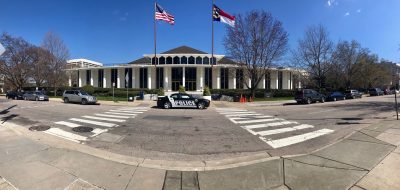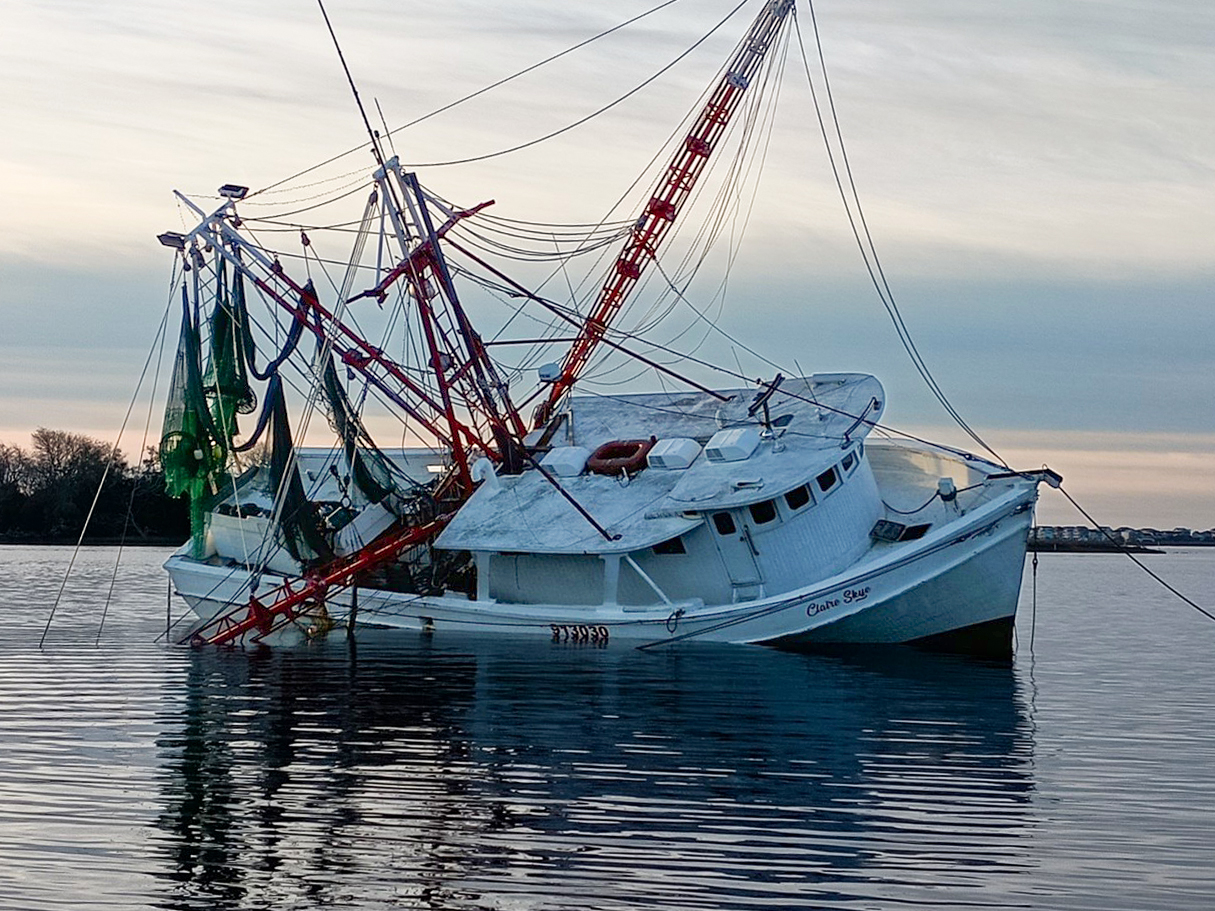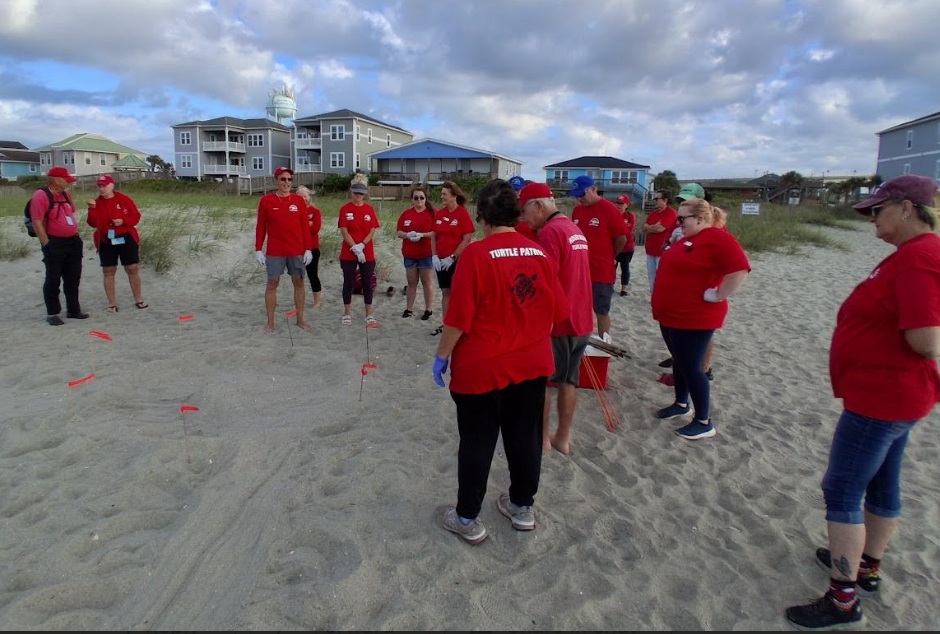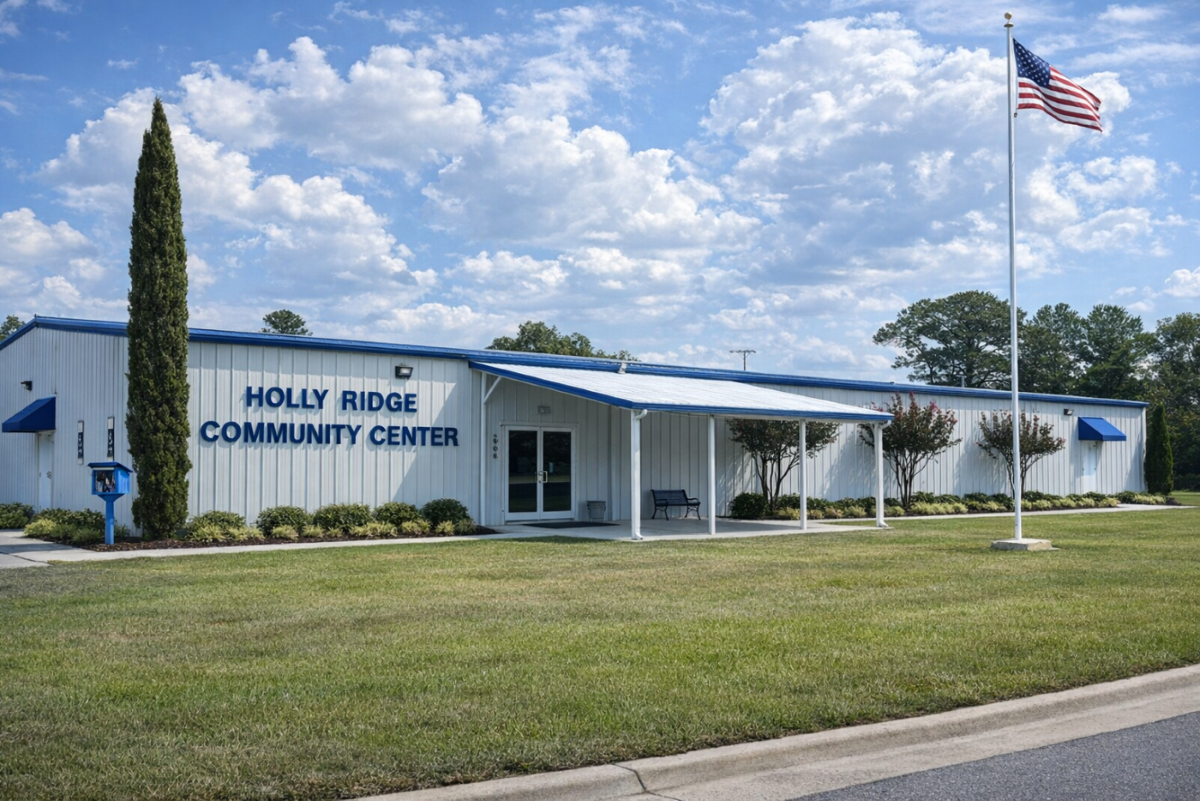
Updated July 11: Gov. Roy Cooper signed the budget bill Monday.
The legislature’s proposed $27.9 billion budget approved Friday features provisions for addressing contamination of drinking water by synthetic chemical compounds.
Supporter Spotlight
Much of the funding to address pre- and polyfluorinated substances, or PFAS, often called emerging compounds, is in the form of grants that funnel federal infrastructure and recovery act dollars.
The North Carolina General Assembly voted 82-25 Friday to give final approval to the measure and sent it to the governor as it wrapped up the 2021-22 session. Despite bipartisan — veto-proof — support, a lot of folks were unhappy with the process and the results.
Rather than funding significant staff additions at the North Carolina Department of Environmental Quality as Gov. Roy Cooper proposed in his $27.8 billion proposal rolled out in May, the legislature’s budget makes nearly $50 million available through grants from state revolving funds for water and wastewater projects to address PFAS. Most of the grants would include federal dollars from the $1 trillion infrastructure bill that passed last year along with matching state funds.
Cooper had not indicated whether he would sign the bill at the time this report was published.
Cooper’s budget included $2.5 million recurring and $483,000 nonrecurring funding for the North Carolina Department of Environmental Quality to address the compounds that have been found in numerous public drinking water supplies and private wells in eastern North Carolina. The governor’s plan would pay 19 full-time employees for work on emerging compounds, such as permitting, technical support and groundwater testing.
Supporter Spotlight
Like Cooper’s proposal, the legislature’s plan includes $483,000 in nonrecurring money for DEQ to address PFAS, but scales down recurring funds to $841,000.
The recurring money would go to pay for three new positions, an environmental chemist and two hydrogeologists, and make two time-limited lab positions permanent in the Division of Water Resources. The recurring funds also would go for four new positions in Division of Waste Management, an environmental chemist and three hydrogeologists, to address emerging compounds.
The nonrecurring funds in the legislative plan would go to set up agreements to outsource PFAS testing.
Cape Fear River Watch Executive Director Dana Sargent, whose organization sued Chemours and DEQ to stop PFAS pollution, leading to the consent order under which the company now operates, said that outsourcing PFAS testing adds unnecessary steps and red tape without doing anything to protect the public.
“The DEQ needs to duplicate before they can regulate,” Sargent said of any outsourced test results. “We were pushing to get that funding, but here we are again, with funding going elsewhere instead of the only regulatory agency on environmental issues in the state.”
Sargent said the grant approach to addressing PFAS puts the burden on the affected communities. “It seems inequitable, and it seems like a lot of administrative waste,” she said, noting that many small towns or counties may lack the staffing or other resources to apply.
Grants for emerging compounds in water included in the plan are as follows:
- Clean Water State Revolving Fund, Emerging Compounds (DEQ) — $1.7 million nonrecurring. Provides federal infrastructure money for projects addressing emerging compounds such as PFAS.
- Drinking Water State Revolving Fund (DEQ) — $60.6 million nonrecurring. Provides additional funds from infrastructure act and appropriates state matching funds.
- Drinking Water State Revolving Fund, Emerging Compounds (DEQ) — $23.2 million nonrecurring. Provides federal infrastructure money for projects addressing emerging compounds such as PFAS.
- Small and Disadvantaged Community Grants (DEQ) — $23.7 million nonrecurring. Provides federal infrastructure act funds for grants to disadvantaged communities with priority for projects addressing emerging compounds such as PFAS.
The bill also includes similar grant funds for water and wastewater infrastructure, including lead water service line replacement and remediation, and American Rescue Plan money for drinking water and wastewater infrastructure grants.
Other coastal, environmental provisions
The budget includes a $6.5 million Department of Cultural and Natural Resources grant to the North Carolina Coastal Federation, publisher of Coastal Review, for living shoreline projects at Hammocks Beach State Park, Black Duck Island on the Oregon Inlet, Fort Macon State Park and the North Carolina Aquarium at Pine Knoll Shores.
Also, $1 million nonrecurring is included for DEQ as matching funds for a federal grant to the federation for building oyster sanctuaries.
The budget also gives the DEQ secretary authority to accept grant applications for nonfederal costs for projects dealing with beach nourishment, artificial dunes and other coastal storm damage mitigation and remediation.
Cooper’s budget proposal called for $4 million nonrecurring for flood-risk reduction and long-term resilience.
The bill provides $8 million in additional recurring funding for grants from the Parks and Recreation Trust Fund for a total of $24.2 million and $11 million more for the Land and Water Fund for a total of $27.2 million.
The spending plan also includes $1.5 million nonrecurring for Department of Agriculture and Consumer Services cost-share assistance to swine farmers so they can install anaerobic digesters for biogas production, which the North Carolina Conservation Network called “a troubling use of public money.”
The Southern Environmental Law Center also was critical, saying in a statement that biogas projects rely on a “primitive system of storing untreated hog feces and manure in waste pits and spraying that waste onto nearby land” that pollutes waterways and the air and neighbors’ health, especially among Black, Latino and Native American families.
The budget also includes funding for shallow-draft inlet dredging.
One provision would change matching fund requirements for grants from the Shallow Draft Navigation Channel Dredging and Aquatic Weed Fund. The fund is for projects such as dredging shallow-draft navigation channels and aquatic weed control in state waters, and for certain expenses related to beach and inlet management and dredge spoils sites.
North Carolina has a system of designated county development tiers used to determine various state funding opportunities to help with economic development. Currently, counties designated as Development Tier 1 zones must provide one nonstate dollar for every $2 from the fund for awarded dredging projects. The proposed budget would change the local match requirement to $1 for every $3 from the fund regardless of development tier.







